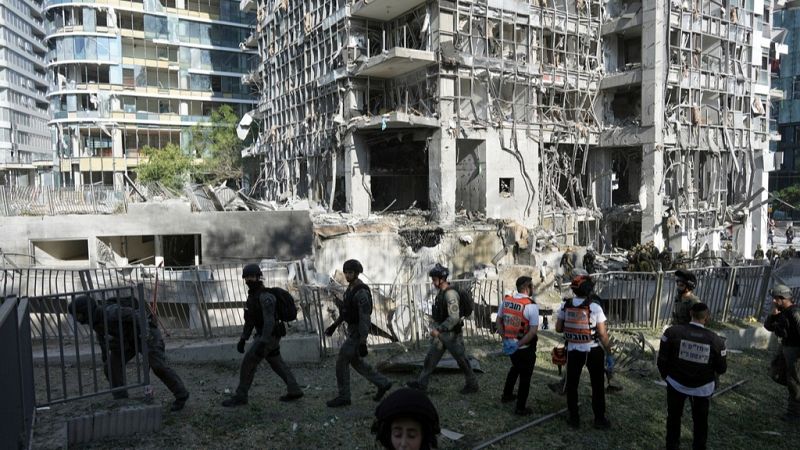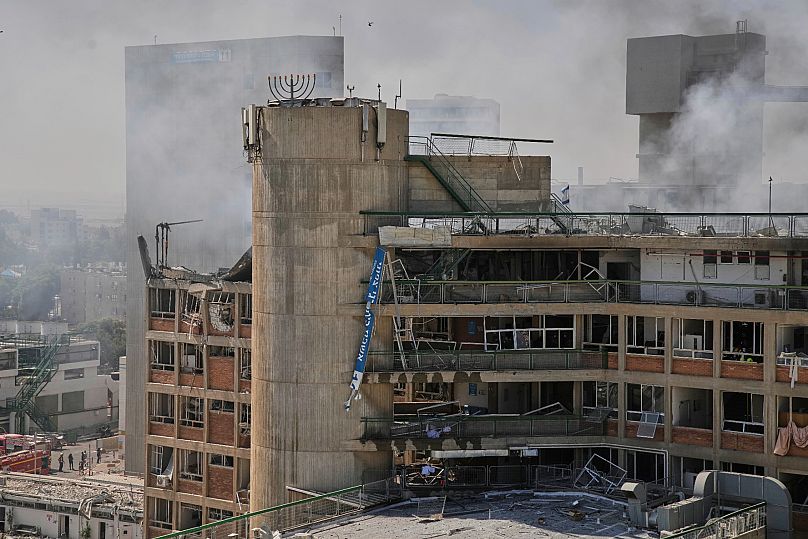
That’s it from the Euronews team this Thursday night. We're closing our live blog as day seven of the escalating Iran-Israel conflict draws to a close.
We'll leave you with this summary of some of the key developments from this evening, and our team of journalists will be back with more live coverage from the early hours of Friday.
Day seven summary
- US president Donald Trump will make a decision on whether to attack Iran "within two weeks," the White House announced on Thursday.
During a press conference late afternoon, White House press secretary Karoline Leavitt said: "Let's be very clear, Iran has all that it needs to achieve a nuclear weapon. All they need is a decision from the Supreme Leader to do that, and it would take a couple of weeks to complete the production of that weapon," Leavitt added.
- Leavitt also said that the US had seen no signs that China would become militarily involved in the conflict in Iran.
- A hospital in Beersheba, Israel, has been hit by a missile strike from Iran, which claims it was aiming for a nearby military site. According to Israel's health ministry, 71 people were injured as a result.

- Iran's ambassador to the UN calls on the EU to put pressure on Israel to end the conflict. "We request and we ask Europe to push Israel to stop the aggression. Europe should play its responsibility to put an end to the impunity that Israel is enjoying," Ali Bahraini told Euronews in an exclusive interview.
- A missile has hit the vicinity of the European Union delegation in Tel Aviv. All personnel is "safe and sound", according to several sources consulted by Euronews.
- German Chancellor Friedrich Merz has urged Israeli Prime Minister Benjamin Netanyahu to moderate his approach to the conflict with Iran.
- In an interview with Israel's public broadcaster Kan TV, Netanyahu said that "the fall or change of the Iranian regime is not our goal, but it may be the result."







